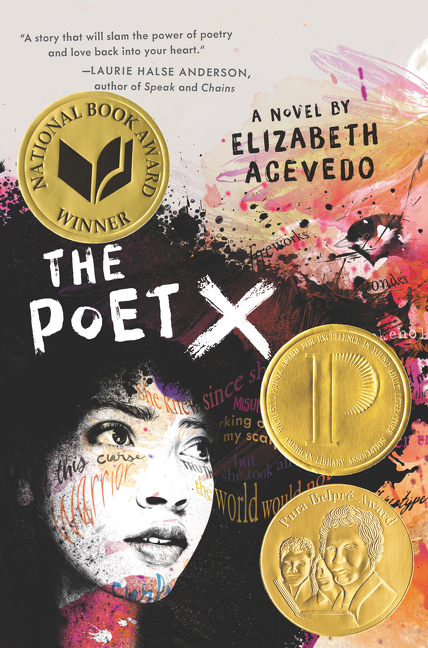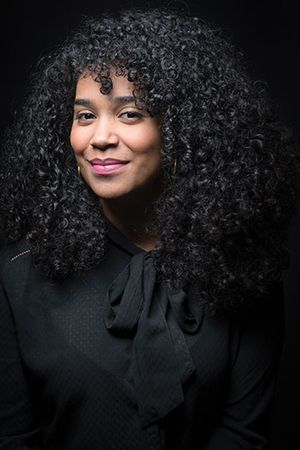Meet-the-Author Recording with Elizabeth Acevedo
The Poet X |
Elizabeth Acevedo introduces and shares some of the backstory for creating The Poet X.
Translate this transcript in the header View this transcript Dark mode on/off
Elizabeth Acevedo: Hi, my name is Elizabeth Acevedo and I'm the author of The Poet X. I was an eighth grade English teacher in Prince George's County, Maryland. And I'd been at this school where 79% of the students were Latinx. I myself was raised in a community that was almost entirely Latinx. And both my students and myself, when I was their age, had very little representation on the bookshelves in our rooms. And I remember talking with one of my students who was a struggling reader and asking her, "What can I get for you? What is it that is impeding you from being interested in these books? Or what kind of genre do you want? Or what kind of character?"
And she looked at me and said, "None of these books are about us. Where are the books that are about us?" And The Poet X initially began as a project to attempt to write myself, and to write my neighbors, and my friends, and the community that I grew up in in New York onto the page. And to see how, not if, but how I could make heroes of the folks who had always been the protagonist of my adventures growing up.
The Poet X was really my teaching myself how to write fiction. When I began writing The Poet X, I wasn't sure how to tell a narrative. I'd never completed a manuscript. And so much of what was surprising in writing The Poet X was the way that, as I wrote more, I discovered more and was able to figure out this character and this story. And in particular, there are these essays that come up that reveal to the reader the way that the main character, Xiomara, would write about herself if she didn't have an audience, versus how she writes when she has to submit it for class. And that was kind of this happy discovery where she wrote this poem, and in my head as the writer, I realized no kid would ever turn this in, right? It exposes too much. It's too vulnerable. They would probably edit it and take some of that out. And that moment of, "Oh, but what if I showed the reader the ways in which sometimes we try to make parts of ourselves invisible or hide parts of ourselves, because it would be too hurtful for people to see those parts?" And so there were a lot of moments like that that felt like little magical discoveries as I sat with the character and the things that she wanted to do.
This is an excerpt from The Poet X, and it's a passage in the very beginning of the book where Xiomara Batista is describing her name:
Names
I'm the only one in the family without a biblical name. Xiomara isn't even Dominican. I know, because I Googled it. It means: One who is ready for war.
And truth be told, that description is about right because I even tried to come into the world in a fighting stance: feet first.
Had to be cut out of Mami after she'd given birth to my twin brother, Xavier, just fine. And my name labors out of some people's mouths in that same awkward and painful way. Until I have to slowly say: See-oh-MAH-ruh. I've learned not to flinch the first day of school as teachers get stuck stupid trying to figure it out.
Mami says she thought it was a saint's name. Gave me this gift of battle and now curses how well I live up to it.
My parents probably wanted a girl who would sit in the pews wearing pretty florals and a soft smile. They got combat boots and a mouth silent until it's sharp as an island machete.
This Meet-the-Author Recording with Elizabeth Acevedo was exclusively created in August 2020 by TeachingBooks with thanks to HarperCollins.



